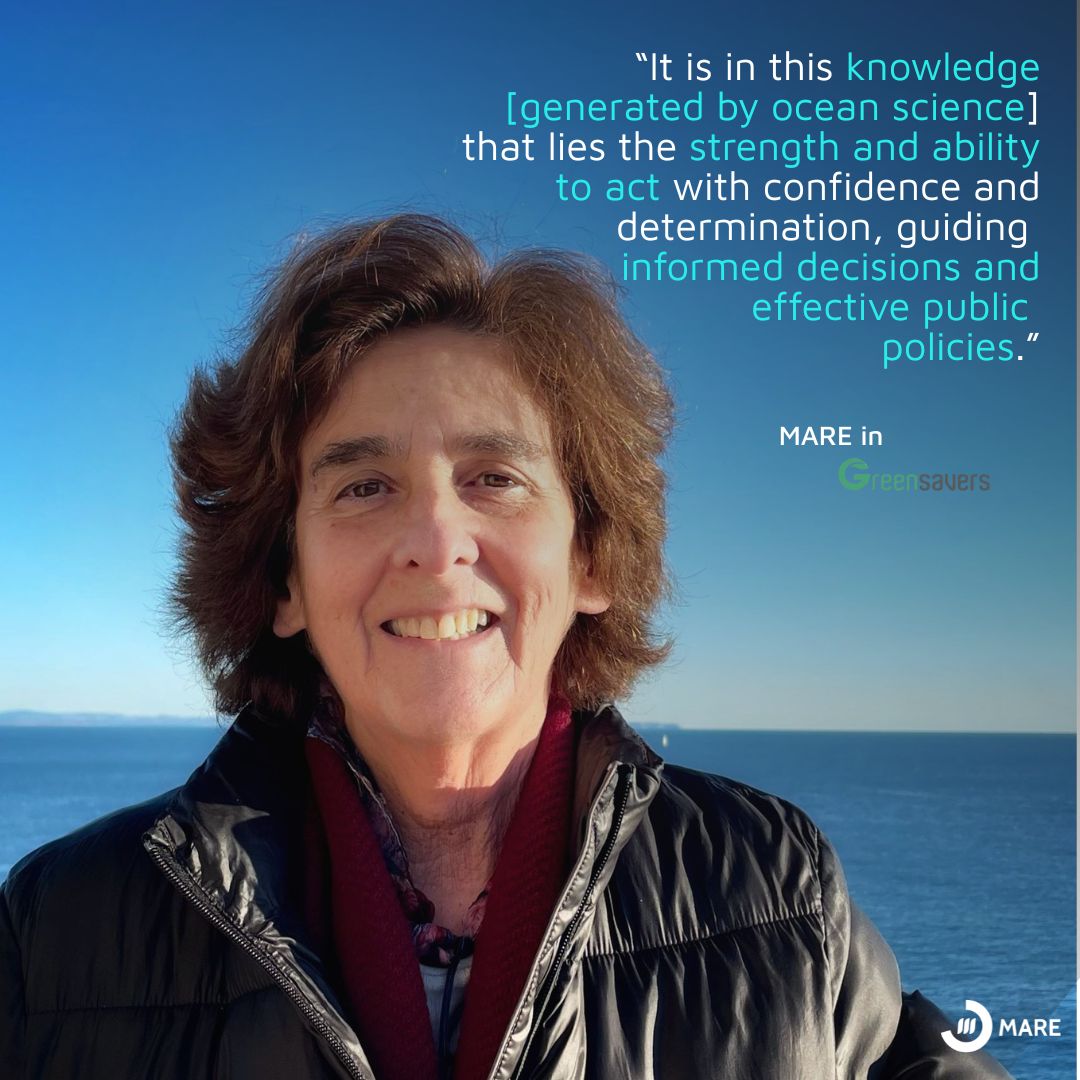Paula Sobral highlights Urgent Challenges for the Ocean
MARE researcher Paula Sobral recently published an opinion piece in Greensavers entitled “National Sea Day: Global Challenges.” In the article, the researcher highlights National Sea Day (November 16) as a crucial moment to reflect on the crisis facing the ocean and the urgency of coordinated global action. 
Paula Sobral emphasizes that the ocean is in an “unprecedented crisis.” The researcher points to the inseparability of the ocean and climate, climate change, the evident impacts on marine biodiversity, and the growing amount of pollutants (including plastics) as the main factors that require an immediate and concerted response.
“What we already know about the impacts caused is more than enough to take action, and this is increasingly the option that is gaining consensus,” says the researcher.
Fortunately, the ocean crisis has gained prominence on the global political agenda, resulting in several important initiatives such as the Decade of Ocean Science (2021-2030), focused on transformative solutions, and the UN's ambitious 30x30 goal, which aims to protect 30% of the ocean through Marine Protected Areas by 2030.
Portugal has already ratified the landmark Treaty on the High Seas (BBNJ), which aims to protect biodiversity in international waters, and the European Union launched the European Pact for the Ocean in June 2025. At the national level, Portugal has established a moratorium on deep-sea mining in its waters until 2050.
However, Paula Sobral warns of a contradiction: Goal 14 (Protect Marine Life) of the United Nations Agenda 21 is, surprisingly, the most underfunded of all.
In a global context where denial of science and environmental setbacks threaten progress, the researcher argues that scientific knowledge becomes our greatest tool. For the researcher, the knowledge generated by ocean science is fundamental to guiding informed decisions and effective public policies. It is in this knowledge that lies the ability to act with confidence and determination for the future of the ocean, which is, ultimately, the future of us all.
To read the article, click HERE
Text by Patrícia Carvalho
